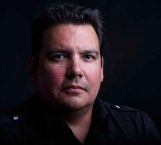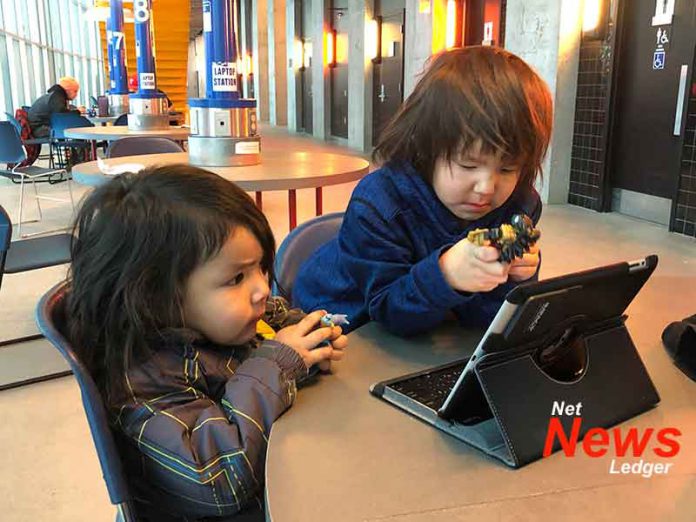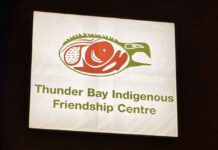The United Nations has declared 2019 the International Year of Indigenous Languages
WINNIPEG – INDIGENOUS – There are around 5,000 Indigenous languages globally, spoken by around four per cent of the world’s population. More than half of them are in danger of disappearing. The UN Educational, Scientific and Cultural Organization is organizing activities and calling on governments to adequately fund Indigenous languages and citizens to initiate preservation projects.
UNESCO will have to proceed without the United States though, after the Trump government withdrew from the organization this week, citing an anti-Israel “bias.” The U.S. government has historically done next to nothing to support Indigenous languages, but this week’s pullout is symbolic. Once with 300 Indigenous languages spoken within its borders, the United States now has 175: and 155 of them expected to disappear in the next 30 years.
In Canada, there are 70 Indigenous languages, and three-quarters of them are in danger of disappearing in this generation. While the 2016 census reported an increase in people who can “converse” in an Indigenous language, the number of fluent speakers is decreasing.
Canada needs to make a serious commitment to save the primary and foundational languages of our home. The Trudeau government is expected to introduce the Indigenous Languages Revitalization Act this year. It’s in response to public pressure and the fact Indigenous languages will soon be recognized as a legal Indigenous right.
This legislation, if implemented with teeth, could be a game-changer for reconciliation and Canada’s future. It would give, if anything, much-needed support to the tireless work of Indigenous language activists who have been fighting an uphill battle for decades.
Here are three more things worth watching for this year:
1)In late 2018, the federal government appointed former Supreme Court justice Frank Iacobucci to oversee a new round of consultations for the proposed Trans Mountain Pipeline expansion. This came after the Federal Court of Appeal threw out the previous approval for the project, due to a lack of environmental considerations for marine life and inadequate consultations with First Nations.
Consultation with First Nations over anything is never about no, it’s about recording presentations by Indigenous leaders and elders to determine how much governments have to pay. This makes the Court of Appeal decision an anomaly.

Iacobucci has been given no timeline and vows a “two-way dialogue.”
This is with a backdrop of a federal government facing an election in October, a pro-pipeline right-wing surge in Alberta (with United Conservative Party Leader Jason Kenney expected to become premier in May), and a widely expected environmental approval of the pipeline expansion (marine life apparently can be accommodated — note: sarcasm).
In other words, standing in the way of the pipeline, which the Trudeau government bought for $5.4 billion and, frankly, needs to save its electoral chances, is Indigenous peoples.
In the past, First Nations lose in these kinds of scenarios but, hey, we’ve already had one anomaly. It’s a new year, why not be optimistic?
2)Indigenous artists.

In 2018, Jeremy Dutcher won the Polaris Music Prize for his album Wolastoqiyik Lintuwakonawa— the fourth win by an Indigenous artist in five years. Billy-Ray Belcourt won the Griffin Poetry Prize. Tanya Talaga won the RBC Taylor Prize for literary non-fiction (Seven Fallen Feathers: Racism, Death, and Hard Truths in a Northern City). Darrel McLeod won the Governor’s General Award for English-language non-fiction for his memoir Mamaskatch: a Cree Coming of Age.
Manitoba has been the centre for Indigenous artistry. The year began with the Winnipeg Art Gallery’s largest exhibit of contemporary, national Indigenous art called Insurgence/Resurgence, curated by Julie Nagam and Jaimie Isaac. The pair also participated with KC Adams and Val Vint to create the huge art installation Niimaamaa, located at the gateway to Niizhoziibean, or the South Point of The Forks.

Joshua Whitehead from Peguis First Nation was short-listed for the Giller Prize for his novel Jonny Appleseed. In the acting world, Tina Keeper produced her first full-length feature film, Through Black Spruce, amongst talk that North of 60(her best-known TV role) may be revived. In the music world, Oji-Cree musician William Prince hit the international charts with his song Breathless, and was even featured in a MasterCard commercial.
Indigenous artistry is arguably Manitoba’s fastest-growing and most successful community. Watch for all of the above in 2019 — and for names such as Kelly Fraser (Inuit singer), Cameron Flamand (Métis artist), Jennifer Storm (Ojibway graphic novelist and visual artist), Rhonda Head (Cree soprano singer), and Tasha Spillett (Cree graphic novelist).
3)Lastly, growing up, I always watched politics, but never did I hear Indigenous issues mentioned in a federal election campaign. No one won voters talking about Indigenous peoples.
Those days are past.
In early December, every political party started courting Indigenous voters and candidates. (I have more than a dozen Indigenous friends who have been asked to consider running for federal parties.)

Prime Minister Justin Trudeau and Opposition leader Andrew Scheer (Tories) showed up at the Assembly of First Nations’ special chiefs assembly in early December (never have both before). And, perhaps most important, every politician seems to want more selfies with Indigenous peoples than ever before. (Check social media for proof.)
It’s a national election year, and Indigenous peoples are on the agenda. There’s legislation coming (Indigenous rights and child welfare) and new policy handbooks from the NDP, the Greens, and even the Conservatives.
What’s most remarkable is federal parties see Indigenous peoples as a relevant voter base and a pathway to government. That’s new.
Maybe it’s a sign of change. I’m trying to be optimistic.
It is, after all, a new year.

Originally appeared in the Winnipeg Free Press on January 8, 2019. Republished with permission of the author







